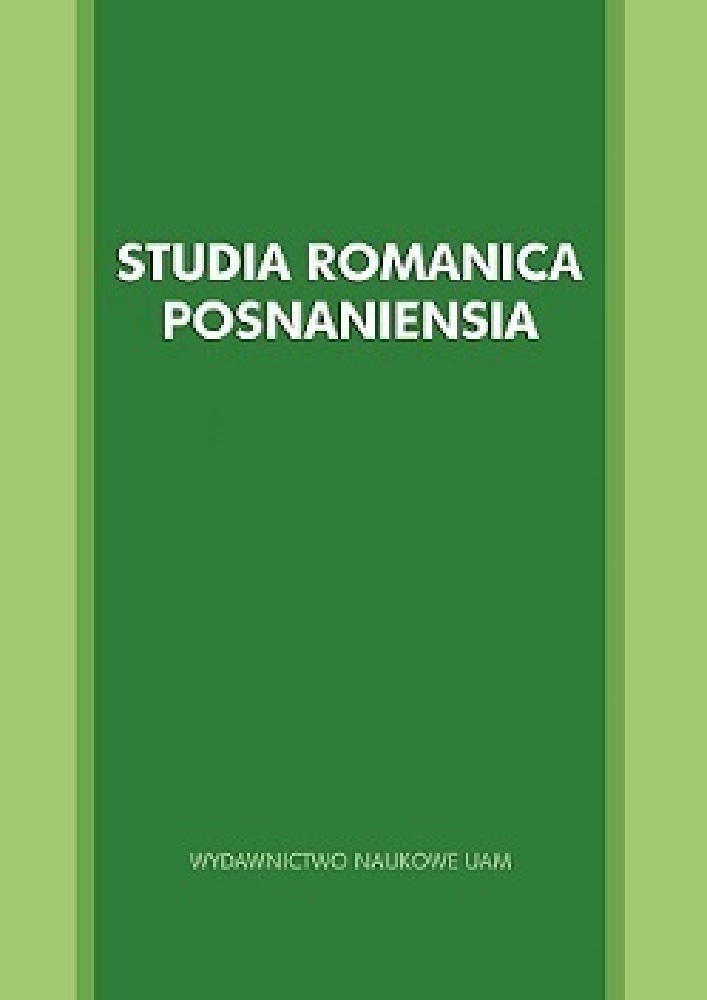Abstrakt
The article examines the question of the concentration camp space and the figure of the “Muslim” in the novel Les Boucs (1955) by the Moroccan writer Driss Chraïbi. Published ten years after the war, the novel nevertheless uses certain motifs from the literature of the camps. Even if the geography of “Arab Paris” in North African literature has been well described and analyzed, the kinship of the Goats with concentration camp literature has not received sufficient attention. Therefore, in my study I will first recall the circumstances of publication of the novel and the main lines of its reception by critics to then move on to the analysis of the concentrationary space in the novel. The link with the space of the camps will finally be reinforced by the evocation of the figure of the “Muslim”, well known from the testimonies and expressly exploited by Driss Chraïbi.
Bibliografia
Agamben, G. (1999). Ce qui reste d’Auschwitz. Paris : Éditions Payot.
Alix, F. (2009). Le Paris arabe des « Boucs », des « lascars » et des « chibanis » (Chraïbi, Boudjedra et Djemaï). Expressions maghrébines, 2, 11-30.
Benzakour Chami, A. (1991). La femme et la bête chez Driss Chraïbi. Horizons Maghrébins, 17, 102-109. DOI: https://doi.org/10.3406/horma.1991.1101
Bernard-Nouraud, P. (2013). Figurer l’autre. Essai sur la figure du « musulman » dans les camps de concentration nazis. Paris : Éditions Kimé.
Bonn, C. (2000). L’exil et la quête d’identité, fausses portes pour une approche des littératures de l’émigration? Texte réécrit d’une communication au colloque « Littérature maghrébine d’expression française entre clichés, lieux communs et originalité ». https://www.limag.com/Textes/Bonn/EmigrTunisGafaiti.htm [accès : 02.09.2022].
Chraïbi, D. (2001). Le Monde à côté. Paris : Éditions Denoël.
Chraïbi, D. (2003). Les Boucs. Paris : Éditions Denoël.
Chraïbi, D. (2005). Succession ouverte. Paris : Éditions Denoël.
Czapliński, P. (2009). Niebezpieczne arcydzieło. In J. Conrad, Jądro ciemności, trad. J. Polak (pp. 121-170). Poznań : Vesper.
Jurgenson, L. (2003). L’Expérience concentrationnaire est-elle indicible ?. Paris : Éditions du Rocher.
Levi, P. (1987). Si c’est un homme. Paris : Julliard.
Mahfoudh, A. (2013). Le passé simple, de Driss Chraïbi (1954). Paris : L’Harmattan.
Rousset, D. (1965). L’Univers concentrationnaire. Paris : Éditions de Minuit.
Saïd, E. (2015). L’Orientalisme, trad. C. Malamoud et C. Wauthier. Paris : Seuil.
Teklik, J. (2010). La polarité spatiale dans les textes testimoniaux : Antelme, Cayrol, Levi, Rousset. Études Romanes de Brno, 31/2, 27-37.
Licencja

Utwór dostępny jest na licencji Creative Commons Uznanie autorstwa – Użycie niekomercyjne – Na tych samych warunkach 4.0 Międzynarodowe.
- Autor oświadcza, że przysługują mu osobiste i majątkowe prawa autorskie do Utworu oraz że nie są one ograniczone w zakresie objętym niniejszą Umową, oraz że utwór jest dziełem oryginalnym i nie narusza majątkowych lub osobistych praw autorskich innych osób.
- Autor udziela Uniwersytetowi im. Adama Mickiewicza w Poznaniu niewyłącznej i nieodpłatnej licencji na korzystanie z Utworu bez ograniczeń terytorialnych i przez czas nieokreślony na następujących polach eksploatacji:
2.1. wytwarzanie określoną techniką egzemplarzy Utworu, w tym techniką drukarską, reprograficzną, zapisu magnetycznego oraz techniką cyfrową;
2.2. wprowadzanie do obrotu, użyczenie lub najem oryginału albo egzemplarzy Utworu;
2.3. publiczne wykonanie, wystawienie, wyświetlenie, odtworzenie oraz nadawanie i reemitowanie, a także publiczne udostępnianie Utworu w taki sposób, aby każdy mógł mieć do niego dostęp w miejscu i w czasie przez siebie wybranym;
2.4. włączenie Utworu w skład utworu zbiorowego;
2.5. wprowadzanie Utworu w postacie elektronicznej na platformy elektroniczne lub inne wprowadzanie Utworu w postaci elektronicznej do Internetu, Intranetu, Extranetu lub innej sieci;
2.6. rozpowszechnianie Utworu w postaci elektronicznej w Internecie, Intranecie, Extranetu lub innej sieci, w pracy zbiorowej jak również samodzielnie;
2.7. udostępnianie Utworu w wersji elektronicznej w taki sposób, by każdy mógł mieć do niego dostęp w miejscu i w czasie przez siebie wybranym, w szczególności za pośrednictwem Internetu, Intranetu, Extranetu lin innej sieci;
2.8. udostępnianie Utworu zgodnie z wzorcem licencji Attribution-NonCommercial-ShareAlike 4.0 International (CC BY-NC-SA 4.0) lub innej wersji językowej tej licencji lub którejkolwiek późniejszej wersji tej licencji, opublikowanej przez organizację Creative Commons. - Autor zezwala Uniwersytetowi im. Adama Mickiewicza w Poznaniu na:
3.1. nieodpłatne korzystanie i rozporządzanie prawami do opracowań Utworu i tymi opracowaniami.
3.2. wysyłanie metadanych Utworu oraz Utworu do komercyjnych i niekomercyjnych baz danych indeksujących czasopisma. - Autor upoważnia i zobowiązuje Uniwersytet im. Adama Mickiewicza w Poznaniu do udzielania osobom trzecim dalszych licencji (sublicencji) do Utworu oraz do innych materiałów, w tym utworów zależnych lub opracowań zawierających lub powstałych w oparciu o Utwór, przy czym postanowienia takich sublicencji będą tożsame z wzorcem licencji Attribution-NonCommercial-ShareAlike 4.0 International (CC BY-NC-SA 4.0) lub innej wersji językowej tej licencji lub którejkolwiek późniejszej wersji tej licencji, opublikowanej przez organizację Creative Commons Tym samym uprawnia wszystkich zainteresowanych do korzystania z utworu wyłącznie w celach niekomercyjnych pod następującymi warunkami:
4.1. uznanie autorstwa czyli obowiązek podania wraz z rozpowszechnionym utworem informacji, o autorstwie tytule, źródle (odnośniki do oryginalnego utworu, doi) oraz samej licencji;
4.2. na tych samych warunkach, wolno rozpowszechniać utwory zależne jedynie na licencji identycznej to tej, na jakiej udostępniono utwór oryginalny. - Uniwersytet im. Adama Mickiewicza w Poznaniu jest zobowiązany do:
5.1. udostępniania Utworu w taki sposób, aby każdy mógł mieć do niego dostęp w miejscu i w czasie przez siebie wybranym bez ograniczeń technicznych;
5.2. poprawnego informowania osób, którym Utwór będzie udostępniany o udzielonych im sublicencjach w sposób umożliwiający odbiorcom zapoznanie się z nimi.
Pozostałe postanowienia
- Uniwersytet im. Adama Mickiewicza w Poznaniu zachowuje prawo do czasopisma jako całości (układ, forma graficzna, tytuł, projekt okładki, logo itp.).

